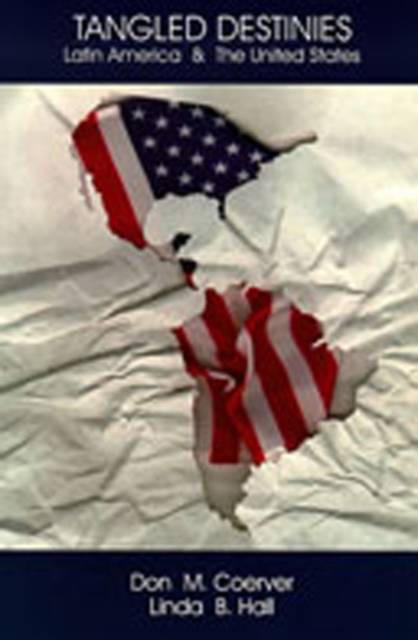
- Afhalen na 1 uur in een winkel met voorraad
- Gratis thuislevering in België vanaf € 30
- Ruim aanbod met 7 miljoen producten
- Afhalen na 1 uur in een winkel met voorraad
- Gratis thuislevering in België vanaf € 30
- Ruim aanbod met 7 miljoen producten
Omschrijving
An imbalance of power and a sense of unresolved tension have long plagued relations between the United States and Latin America. This book offers an important new synthesis of that complex relationship by studying how actions and policies of the United States have been interpreted and played out in Latin America.
Beginning with the Monroe Doctrine in 1823, the United States unilaterally asserted its right to protect the hemisphere against foreign intervention. But what began as a policy boldly proclaiming hemispheric security soon led to direct intervention by the United States in political, economic, and military matters throughout Latin America. Meddling by the United States resulted in deep-seated antagonisms that have adversely impacted U.S.-Latin American relations for over 150 years.
Don Coerver and Linda Hall draw on their expertise in modern Latin American history to present U.S. policies in light of their impact on these countries. They help readers understand the issues that have defined and divided nations of the Western Hemisphere from the 1820s to the present. Events since 1940 are the focus of more than half the book, including the Cuban Revolution and missile crisis; negotiations in the 1970s over turnover of the Panama Canal; wars in Central America in the 1980s; and in the 1990s, the impact of the North American Free Trade Agreement (NAFTA) on relations with Mexico and the effects of the so-called war on drugs throughout the Americas.
Specificaties
Betrokkenen
- Auteur(s):
- Uitgeverij:
Inhoud
- Aantal bladzijden:
- 303
- Taal:
- Engels
- Reeks:
Eigenschappen
- Productcode (EAN):
- 9780826321176
- Verschijningsdatum:
- 1/11/1999
- Uitvoering:
- Paperback
- Formaat:
- Trade paperback (VS)
- Afmetingen:
- 153 mm x 227 mm
- Gewicht:
- 417 g

Alleen bij Standaard Boekhandel
Beoordelingen
We publiceren alleen reviews die voldoen aan de voorwaarden voor reviews. Bekijk onze voorwaarden voor reviews.











